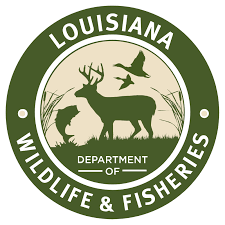LOUISIANA DEPARTMENT OF WILDLIFE AND FISHERIES SLOWLY LIFTS LONG-STANDING OYSTER LEASE MORATORIUM
Sat, Jul 1, 2023
Read in 2 minutes
After nearly 20 years, the Louisiana Department of Wildlife & Fisheries (LDWF) officially lifted the oyster lease moratorium, returning a glimmer of hope to oyster farmers.

Oyster farming has been a vital part of Louisiana’s economy and culture for more than 150 years, but in 2002 LDWF put a moratorium in place, prohibiting the leasing of water bottoms for oyster cultivation in an effort to limit the state’s liability from the impacts of coastal restoration projects on the oyster industry.
Through the years, the moratorium has had a devastating effect on the oyster industry, harming its growth and competitiveness as the nation’s number one producer, processor and distributor of the world’s best tasting oysters.
The decision to lift the moratorium on February 4, 2021, is based on new rules and regulations approved by the Louisiana Wildlife and Fisheries Commission on August 2, 2019. LDWF staff worked with the Louisiana Oyster Task Force and the task force’s oyster lease moratorium sub-committee, and various coastal stakeholders to develop the proposed rule change passed by the Commission.
The ban aimed to limit the state’s liability should coastal restoration work affect water bottoms, after the 1993 operation of the Caernarvon freshwater diversion project rendered some of private oyster leases on Plaquemines Parish’s east bank unproductive.
Louisiana’s $317 million oyster industry has been battered with challenges such as BP’s Deepwater Horizon oil spill and the 2019 opening of the Bonnet Carre Spillway to relieve pressure on the levees along the Mississippi River. Louisiana’s fishing industry suffered an estimated $258 million in losses from the spillway opening.
A press release issued by LDWF said the following:
“Lifting the oyster lease moratorium is important for the industry as it will allow oystermen to diversify oyster growing locations within estuaries and adapt to environmental changes.”
As published by LDWF, the six phases include:
PHASE O (CURRENT PHASE): PRE-MORATORIUM LEASE APPLICATIONS ARE PROCESSED
LDWF, the Office of State Lands (OSL), and the Coastal Protection and Restoration Authority (CPRA) will review oyster lease applications that were being processed when the oyster lease moratorium began. There are currently 35 applications that will be reviewed prior to the state issuing a lease agreement.